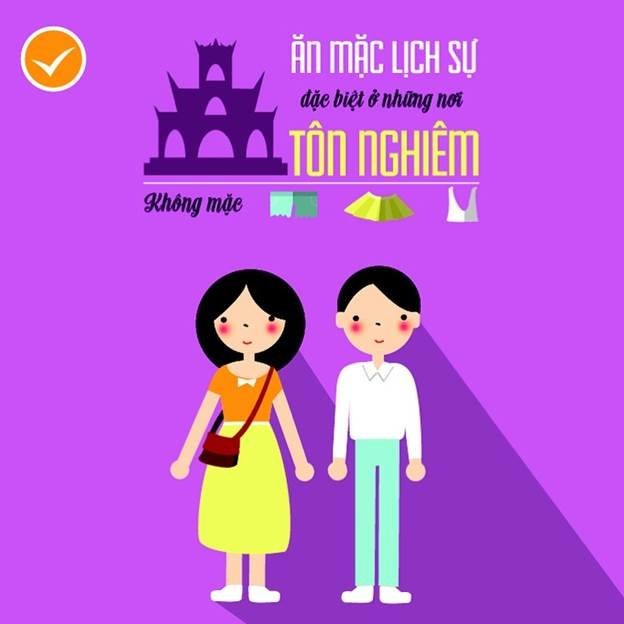(VOVworld) – Welcoming an increasing number of tourists in recent years, Da Nang has invested in infrastructure and imposed measures to improve services. The provincial Department of Tourism has issued a Code of Conduct to guide tourists and people working in the tourism sectors.
 |
| A poster on code of dressing, particularly at sacred, historical sites |
The Code of Conduct applies to sectors, organizations, and individuals working in tourism industry, Da Nang citizens, and Vietnamese and foreign tourists in Da Nang. It is intended to improve people’s awareness of tourism culture and to have friendly and polite behavior and introduce visitors to local cultural norms. Tran Chi Cuong, Deputy Director of Da Nang’s Tourism Department, says: “The purpose of the Code of Conduct is to help improve people’s behavior in tourist activities. Together with the implementation of the “Year of Culture and Urban Civilization”, the Code of Conduct has created changes in the awareness, views, and behavior of local people, tourists, and tourist agencies. The guideline also helps improve service quality.”

Do not damage cultural and historical sites |
The Code of Conduct includes regulations on respecting cultural traditions, local customs and practices, having the proper etiquette, protecting the natural and social environment, and complying with local rules in public places.
Individuals and organizations working in the tourism industry are required to respect vacationers and treat them with a friendly and hospitable attitude.
They must be honest and helpful to tourists and committed to not providing unqualified services or products of unidentified origins.
Da Nang people are urged to welcome tourists in a friendly and hospitable manner, respect old people, support people with disabilities, children, and women. Meanwhile, tourists are asked to respect the city’s culture, customs and traditions and avoid damaging public assets and tourism spots.